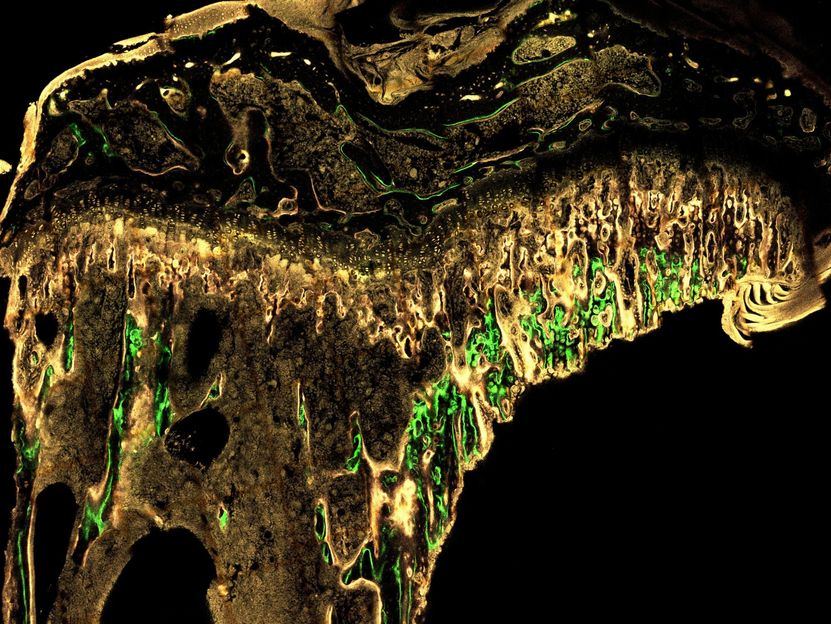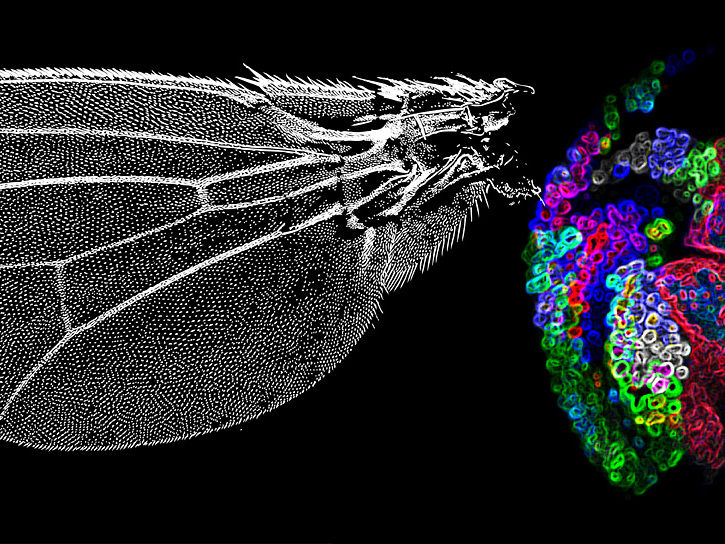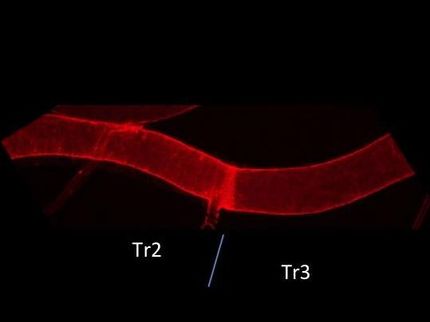Discovery of a key regulatory gene in cardiac valve formation
Researchers from the University of Basel in Switzerland have identified a key regulator gene for the formation of cardiac valves - a process crucial to normal embryonic heart development.
The heart is the first functional organ that develops in vertebrate embryos. In humans, it starts to beat four weeks into the pregnancy. Unfortunately, congenital heart disease is one of the most common developmental abnormalities and the leading cause of birth defect-related deaths. These heart defects often involve malformations of cardiac valves, which are required to regulate the pressure and flow of blood in the cardiac chambers.
Unexpected role for HAND2 transcription factor in cardiac valve formation
A research team led by Prof. Zeller and Dr. Zuniga from the University of Basel has identified the so-called HAND2 gene as a key regulator that triggers the formation of cardiac valves in mouse embryos, a process that is crucial for normal heart development. Previous research using mouse models lacking HAND2 had shown that this gene regulates outflow tract and right ventricle development.
The researchers thus set out to identify the set of genes that are controlled by HAND2 in developing mouse hearts. In doing so, they identified a previously unknown heart defect in mouse embryos lacking HAND2. The mutant hearts lack the cardiac cushions, which would normally develop into cardiac valves. Normally, the cells contributing to these cushions undergo complex cellular rearrangements as they detach from the lining of the heart wall and migrate into the cushions to “fill them up”. As this mechanism is crucial for heart development, the researchers investigated how HAND2 controls this fundamental event during cardiac valve development.
HAND2 controlled gene network
In humans, defects in valve formation underlie different congenital heart malformations but the molecular mechanisms controlling heart valve development are not well understood. By studying mouse embryos, the research group has now identified the network of genes directly controlled by HAND2 that regulates cardiac valve formation.
The discovery of the HAND2 controlled gene network is of general relevance as mutations in HAND2 have recently been linked to heart valve malformations in human patients. «Not only does this discovery advance our molecular knowledge of cardiac valve development, but it may also help to provide genetic diagnosis for patients that suffer from congenital heart malformations,» says first author Fréderic Laurent of the Department of Biomedicine.
Engineering valves from stem cells
Heart valve replacements are among the most common cardiac surgeries performed and one of the future promises of biomedical research is to engineer replacement valves from stem cells. The discovery that HAND2 is a key regulator of the cellular and gene regulatory processes underlying heart valve formation is a potential milestone in this direction.
Original publication
Most read news
Original publication
Frédéric Laurent, Ausra Girdziusaite, Julie Gamart, Iros Barozzi, Marco Osterwalder, Jennifer A. Akiyama, Joy Lincoln, Javier Lopez-Rios, Axel Visel, Aimée Zuniga, Rolf Zeller; "HAND2 Target Gene Regulatory Networks Control Atrioventricular Canal and Cardiac Valve Development"; Cell Reports; 2017
Topics
Organizations
Other news from the department science

Get the life science industry in your inbox
By submitting this form you agree that LUMITOS AG will send you the newsletter(s) selected above by email. Your data will not be passed on to third parties. Your data will be stored and processed in accordance with our data protection regulations. LUMITOS may contact you by email for the purpose of advertising or market and opinion surveys. You can revoke your consent at any time without giving reasons to LUMITOS AG, Ernst-Augustin-Str. 2, 12489 Berlin, Germany or by e-mail at revoke@lumitos.com with effect for the future. In addition, each email contains a link to unsubscribe from the corresponding newsletter.
Most read news
More news from our other portals
Last viewed contents
NorDiag enters distribution and collaboration agreement with Molzym
UCB Presents Long-Term CIMZIA Data in Crohn's Disease - CIMZIA maintained long-term response at stable doses
Map of 224 European biorefineries published - BIC and nova-Institute showing european bio-production landscape
West_Nile_virus
Epigenetic analysis of aggressive brain tumors

Researchers link breast cancer and bone growth - Scientists made a surprisingly opposite discovery






















































